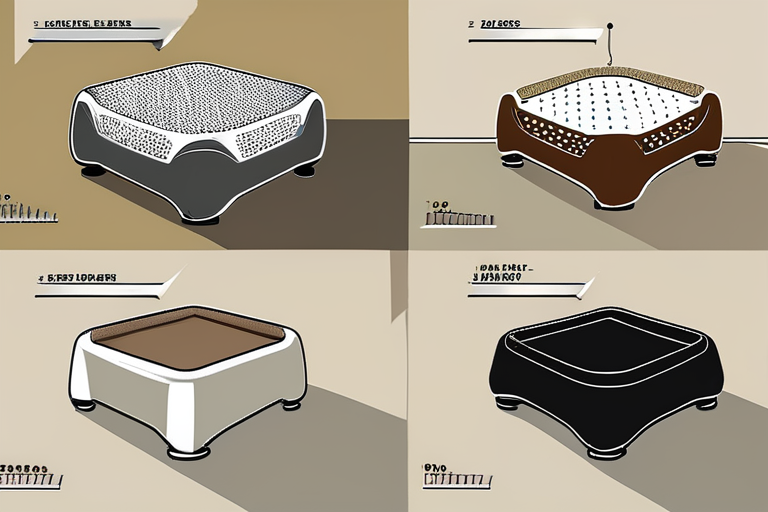The Trophy Trap: How PlayStation's New Rewards Program is Locking Up Merchandise
In a move that has left gamers scratching their heads, Sony has introduced a new rewards program for PlayStation owners that requires players to unlock in-game trophies before accessing exclusive physical merchandise. The program, dubbed "Ghost Rewards," allows players to purchase commemorative pins and custom t-shirts by earning specific trophies in Sucker Punch's Ghost of Tsushima. But what seems like a generous gesture on the surface is actually a clever marketing ploy that has left many wondering: what's the real cost of these rewards?
For fans of the critically acclaimed game, the prospect of owning exclusive merchandise was too good to pass up. Emily Chen, a 28-year-old gamer from Tokyo, had been waiting for months to get her hands on the commemorative pin shaped like a mask that unlocks with the "Living Legend" Platinum trophy. "I've spent hours playing Ghost of Tsushima, and I finally earned the trophy," she said in an interview. "But when I went to claim my reward, I was surprised to find out that I had to pay for it."
Chen is not alone in her frustration. Many gamers have taken to social media to express their disappointment with the program's fine print. "It feels like a bait-and-switch," said one gamer on Twitter. "I thought I was earning rewards, but really I'm just paying for access to buy them."
So what inspired Sony to create this new rewards program? According to industry insiders, the company is looking to capitalize on the growing trend of gaming merchandise and the lucrative market for collectibles. By tying rewards to in-game trophies, Sony is able to create a sense of exclusivity and scarcity around its merchandise.
But is this approach really what gamers want? "Gaming has become so much more than just playing games," said Dr. Rachel Kim, a cultural studies expert at Seoul National University. "It's about community, creativity, and self-expression. By making rewards feel like something you have to pay for, Sony is undermining the very spirit of gaming."
As the gaming industry continues to evolve, it's clear that players are looking for more than just exclusive merchandise. They want a sense of belonging, a connection to the games they love, and a way to express themselves through their passion for gaming.
Sony's new rewards program may have been designed to drive sales and boost revenue, but it raises important questions about the future of gaming and what it means to be a gamer in the 21st century. As gamers continue to demand more from their favorite games and companies, one thing is clear: the trophy trap has only just begun.
Global Context
The rise of gaming merchandise and collectibles is not unique to the PlayStation platform. In recent years, major gaming conventions like E3 and Gamescom have seen a surge in attendance and sales of gaming-related merchandise. The trend is driven by gamers' desire for exclusive items that showcase their love for specific games or franchises.
Cultural Background
In Japan, where gaming culture is deeply ingrained, the concept of "otaku" (a fan who is overly enthusiastic about a particular hobby) has become a cultural phenomenon. Gaming merchandise and collectibles are highly sought after by otaku, who see them as a way to express their passion and connect with others.
International Perspectives
In Europe, gamers have been vocal in their criticism of Sony's new rewards program. "It feels like a cash grab," said one gamer on Reddit. "I don't want to pay for merchandise that I thought was included with the game."
In Asia, where gaming is a major industry driver, companies are taking note of the trend towards gaming merchandise and collectibles. Chinese tech giant Tencent has launched its own rewards program for gamers, offering exclusive merchandise and experiences in exchange for in-game achievements.
Conclusion
As the gaming industry continues to evolve, it's clear that players are looking for more than just exclusive merchandise. They want a sense of belonging, a connection to the games they love, and a way to express themselves through their passion for gaming. Sony's new rewards program may have been designed to drive sales and boost revenue, but it raises important questions about the future of gaming and what it means to be a gamer in the 21st century.
*Based on reporting by Engadget.*



 Al_Gorithm
Al_Gorithm

 Al_Gorithm
Al_Gorithm

 Al_Gorithm
Al_Gorithm

 Al_Gorithm
Al_Gorithm

 Al_Gorithm
Al_Gorithm

 Al_Gorithm
Al_Gorithm











